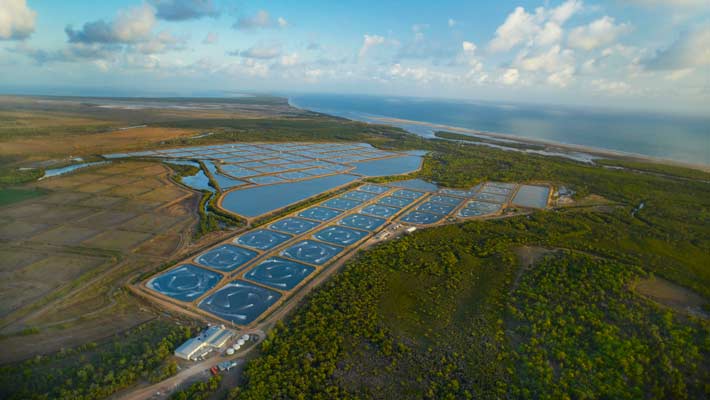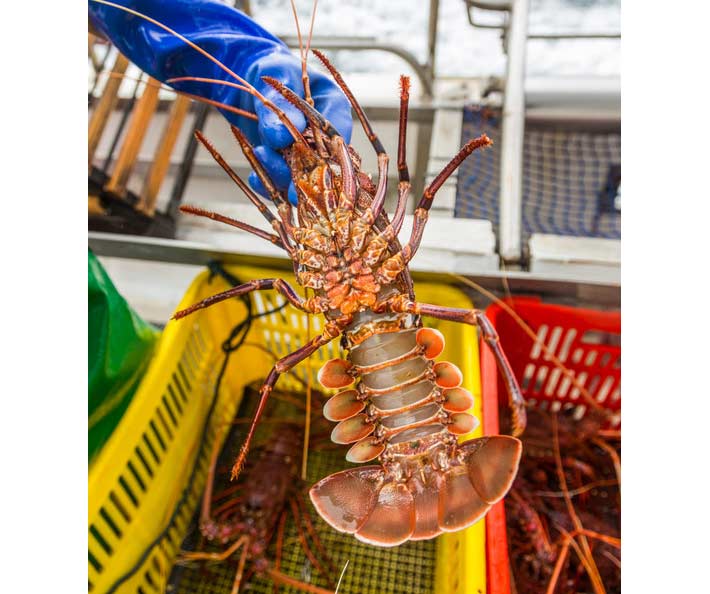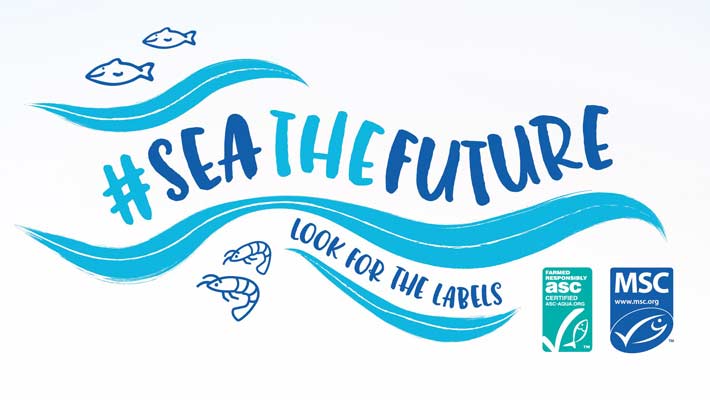Posted on 11th March 2019 by Media Relations
Wild vs farmed seafood – are they both sustainable?
Our oceans need our help. Almost 90% of the world’s fish stocks are depleted, over-exploited or fished up to their limit. This is bad news for the communities that rely on fisheries for their livelihoods and for the marine wildlife whose food source is being depleted.
Sustainable fishing means leaving enough fish in the ocean, respecting habitats and ensuring people who depend on fishing can maintain their livelihoods. This means ensuring that it is either caught or farmed in a method that takes into consideration the long-term viability of not only the species, but it’s habitat as a whole.
Although there are other environmental pressures on the ocean, when it comes to seafood there are simple choices you can make that have a positive impact whether it is wild caught or farmed.
Farmed seafood

Farmed seafood are species that are bred and grown commercially. These farms exist in many different forms and environments including dams and cages in the open ocean.
The Aquaculture Stewardship Council (ASC) runs an ambitious programme to transform the world's seafood markets and promote the best environmental and social aquaculture performance.
For animals to grow, you need to feed them. In the case of farmed fish, the main ingredient in their diet is wild caught fish. The ASC ensures that there are strict limits on the use of wild caught fish as a food source. The ASC also ensure that any food source that uses a plant protein or non-marine ingredients comes from a sustainable source.
Wild caught

Wild caught seafood is harvested from the ocean, rivers and other natural bodies of water using various methods. Some of these methods are quite ecologically damaging, as they are non-selective in what they catch. These fishing methods lead to bycatch, which is a term for when animals that are not wanted are caught up, which include species of whale, dolphin, turtle and other endangered species.
The Marine Stewardship Council (MSC) uses their ecolabel and fishery certification program to contribute to the health of the world’s oceans by recognising and rewarding sustainable fishing practices, influencing the choices people make when buying seafood and working with our partners to transform the seafood market to a sustainable basis.
Your choice matters
The good news is that by choosing seafood that has been certified by independent third party organisations, such as the Marine Stewardship Council (MSC) and the Aquaculture Stewardship Council (ASC) you are ensuring a genuinely sustainable future. Choosing products that carry the blue and green ecolabels allow consumers, like you, to make informed choices about where our food comes from.
